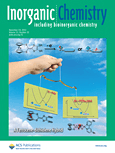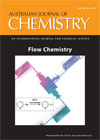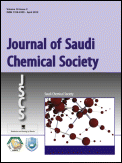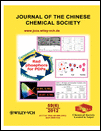
Journal of Organometallic Chemistry
metrics 2024
Pioneering Research at the Intersection of Chemistry
Introduction
Journal of Organometallic Chemistry, published by Elsevier Science SA, serves as a pivotal platform for the dissemination of cutting-edge research in the field of organometallic chemistry. With a history spanning over half a century from 1963 to 2024, this esteemed journal presents innovative findings that intersect various disciplines, including Biochemistry, Inorganic Chemistry, Materials Chemistry, Organic Chemistry, and Physical and Theoretical Chemistry, each achieving a Q3 quartile ranking in 2023. Researchers focusing on the intricate relationships between organic compounds and metals will find this journal an invaluable resource for both theoretical exploration and practical applications. Although it does not offer Open Access, the journal maintains integrity and impact, evident through its Scopus ranking which places it within the competitive landscape of its respective categories. The ISSN for this journal is 0022-328X, and the E-ISSN is 1872-8561, affirming its relevance and accessibility in the academic community.
Metrics 2024
 0.36
0.36 2.10
2.10 1.80
1.80 132
132Metrics History
Rank 2024
Scopus
IF (Web Of Science)
JCI (Web Of Science)
Quartile History
Similar Journals

INORGANIC CHEMISTRY
Advancing the Frontiers of Inorganic ChemistryInorganic Chemistry, published by the American Chemical Society, stands at the forefront of the field of inorganic and physical chemistry, boasting an impressive impact in the academic community with a 2023 classification in the Q1 quartile across multiple categories including Inorganic Chemistry and Miscellaneous Chemistry. Since its inception in 1962, this esteemed journal has been a crucial platform for disseminating groundbreaking research, innovative methodologies, and comprehensive reviews integral to understanding the complex behaviors of inorganic materials. With a ranking of #12 out of 79 in Inorganic Chemistry and #37 out of 189 in Physical and Theoretical Chemistry according to Scopus metrics, Inorganic Chemistry has established itself as a premier destination for researchers, professionals, and students alike, eager to stay abreast of pivotal developments and trends in the discipline. Despite being a subscription-based journal, its esteemed reputation and critical contributions make it essential for anyone engaged in the exploration of inorganic chemical phenomena. As it prepares to converge into a new era by 2024, the journal continues to embody excellence and innovation, fostering a dynamic exchange of ideas essential for advancing this vibrant area of science.

REVIEWS IN INORGANIC CHEMISTRY
Unveiling Insights in Inorganic ResearchREVIEWS IN INORGANIC CHEMISTRY, published by Walter de Gruyter GmbH, is a distinguished academic journal that serves as a vital resource for researchers, professionals, and students within the field of inorganic chemistry. With its ISSN 0193-4929 and E-ISSN 2191-0227, this journal has made a significant impact on the discipline, holding a commendable Q2 ranking in the 2023 category of Inorganic Chemistry, placing it in the 81st percentile among its peers according to Scopus rankings. Continuously published since its inception, with converged years spanning from 1985 to 1990 and 1992 to 2024, it features comprehensive reviews encompassing the latest advancements, methodologies, and theoretical frameworks in the subject. Researchers will find IDEAL insights and valuable discussions that keep them abreast of trends and challenges in the domain, essential for driving innovation and collaboration. The journal’s commitment to quality and rigorous peer review highlights its importance in advancing inorganic chemistry research, making it an indispensable tool for academic excellence.

AUSTRALIAN JOURNAL OF CHEMISTRY
Fostering global collaboration in chemical sciences.The Australian Journal of Chemistry, with an ISSN of 0004-9425 and an E-ISSN of 1445-0038, is a distinguished publication from CSIRO PUBLISHING, dedicated to advancing the field of chemistry since its inception in 1948. Based in Australia, this journal serves as a platform for original research articles, reviews, and innovative studies that encompass a wide spectrum of chemical disciplines, aiming to foster communication and collaboration among researchers globally. Despite its Q3 ranking in the Chemistry (Miscellaneous) category and standing at rank #236 in Scopus’ general chemistry classification, it remains an essential resource for professionals and students seeking to stay informed about emerging trends and discoveries in chemistry. The journal does not offer open access, emphasizing the premium quality of peer-reviewed content that adheres to rigorous academic standards. By bridging theory and practice, the Australian Journal of Chemistry continues to play a crucial role in shaping the future of chemical sciences.

Journal of Inorganic and Organometallic Polymers and Materials
Driving Excellence in Polymer Science and Materials ChemistryThe Journal of Inorganic and Organometallic Polymers and Materials, published by SPRINGER, is a premier academic journal dedicated to advancing the field of materials science, particularly in the domains of inorganic and organometallic polymers. Established in 1996, this journal has successfully converged multiple years of research, reflecting the dynamic evolution of the field through to 2024. With an impressive Scopus Rank placing it in the top 81st percentile in both Materials Chemistry and Polymers and Plastics, it is recognized for its significant contributions and innovations. The journal is classified in the prestigious Q2 Category, indicating its influence and relevance among leading publications. While it operates under a subscription model, the journal is committed to disseminating cutting-edge research, providing insights that empower researchers, professionals, and students to push the boundaries of materials chemistry and polymer science. Its focus on high-quality, peer-reviewed articles ensures that readers are equipped with the latest findings and methodologies that drive this exciting and rapidly evolving field.

Results in Chemistry
Empowering Researchers with Open Access KnowledgeResults in Chemistry is a prominent journal published by Elsevier, dedicated to fostering innovation and disseminating cutting-edge research in the field of chemistry. With an ISSN of 2211-7156, this open-access journal has been committed to making scientific knowledge widely available since 2019, aligning with the global trend towards accessibility in research. Based in the Netherlands, it features interdisciplinary studies that span the breadth of general chemistry, contributing significantly to the academic dialogue within the scientific community. Despite currently holding a Q3 ranking in the miscellaneous category of chemistry and occupying the 228th position out of 408 in Scopus rankings, the journal is poised for growth, aiming to enhance its impact and visibility. Researchers, professionals, and students alike will find invaluable resources and insights within its pages, making Results in Chemistry an essential platform for those looking to stay abreast of advancements and trends in chemistry research up to the year 2024.

Journal of Saudi Chemical Society
Leading the Charge in Cutting-edge Chemical Discoveries.The Journal of Saudi Chemical Society, published by ELSEVIER, stands as a premier platform for advancing knowledge in the field of chemistry. Since its inception in 2009, this Open Access journal has garnered significant attention, securing a prestigious Q1 ranking in the Chemistry (miscellaneous) category for 2023, reflecting its position among the top journals in the discipline. With an impressive Scopus ranking of #66 out of 408 in General Chemistry, this journal boasts a commendable 83rd percentile, underscoring its impact and relevance in the global research community. The journal aims to disseminate high-quality research articles, reviews, and case studies, fostering innovation and collaboration among chemists and allied professionals. By enabling widespread access to cutting-edge research, the Journal of Saudi Chemical Society plays a crucial role in supporting the educational and professional development of students, researchers, and practitioners alike, making it an essential resource for anyone invested in the dynamic field of chemistry.

JOURNAL OF THE CHINESE CHEMICAL SOCIETY
Connecting Researchers with Pioneering DiscoveriesJOURNAL OF THE CHINESE CHEMICAL SOCIETY, published by WILEY-V C H VERLAG GMBH, is a vital resource in the field of chemistry, focusing on a broad array of topics pertinent to general chemistry and its advancing sub-disciplines. Established in 1954 and running through 2024, this journal serves as a significant platform for the dissemination of high-quality research, showcasing innovative findings and developments within the chemical sciences. With its Q3 category ranking and positioning at Rank #203 in General Chemistry per Scopus, it reflects the journal's commitment to research excellence and impact. While not an open-access publication, it ensures accessibility to a global audience, making it an essential tool for researchers, professionals, and students alike seeking to stay informed and engaged in the evolving landscape of chemistry.

Reactions
Exploring the Frontiers of Chemical InnovationReactions is a dynamic open-access journal published by MDPI, dedicated to the advancement of research in the fields of Chemical Engineering and Chemistry. Launched in 2020, the journal aims to provide a platform for scientists and researchers to share their findings and innovations, facilitating the synthesis and dissemination of knowledge within the global academic community. With an impact factor that reflects its growing influence, Reactions ranks 47th in the Chemical Engineering category and 72nd in Chemistry on Scopus, placing it within the vibrant landscape of contemporary chemical research. Housed in the picturesque city of Basel, Switzerland, the journal is committed to open access, ensuring that its high-quality content is readily available to all. This commitment not only enhances visibility but also fosters collaboration among researchers, professionals, and students striving to push the boundaries of chemical sciences. As we look towards 2024 and beyond, Reactions continues to encourage submissions that explore groundbreaking methodologies, innovative applications, and transformative theoretical frameworks in chemistry and chemical engineering.

Chemical Methodologies
Exploring New Frontiers in Chemical ResearchWelcome to Chemical Methodologies, a premier journal published by SAMI PUBLISHING CO-SPC, dedicated to advancing the field of chemistry through innovative research and methodologies. With an ISSN of 2645-7776 and an E-ISSN of 2588-4344, this journal provides a vital platform for researchers and scholars to share their findings in areas encompassing physical, theoretical, and organic chemistry. Despite its initial HIndex and quartile rankings still being established, the journal's evolving impact within the academic landscape is underscored by its Scopus Ranks, which place it in the 35th percentile for physical and theoretical chemistry and the 33rd percentile for organic chemistry. Since its inception in 2022, and continuing through 2024, Chemical Methodologies aims to foster collaboration and knowledge dissemination among academics and practitioners alike, bridging theoretical concepts and practical applications. This open-access platform enhances accessibility for researchers and students worldwide, ensuring that groundbreaking contributions to chemical science reach a broad audience.

RUSSIAN CHEMICAL REVIEWS
Advancing Chemistry Through Insightful ReviewsRUSSIAN CHEMICAL REVIEWS, published by the esteemed ND Zelinsky Institute of Organic Chemistry, RAS, stands as a prominent platform for disseminating high-quality research in the diverse field of chemistry. With an ISSN of 0036-021X and an E-ISSN of 1468-4837, this journal has earned its place in the Q1 quartile of Chemistry (miscellaneous) for 2023, reflecting its outstanding impact and rigorous peer-review process. The journal encompasses a wide array of topics within chemistry, providing critical reviews that advance understanding and foster collaboration among researchers, professionals, and students globally. With its consistent publication since 1970, RUSSIAN CHEMICAL REVIEWS not only serves as a valuable resource for the latest advancements in the field but also plays a crucial role in shaping future research directions. The journal is based in the Russian Federation, with its office located at 47 Leninsky Pr, Moscow 119991, RUSSIA. As an essential reference for those in the chemical sciences, it provides an ideal avenue for authors looking to publish impactful reviews that contribute to the broader scientific community.